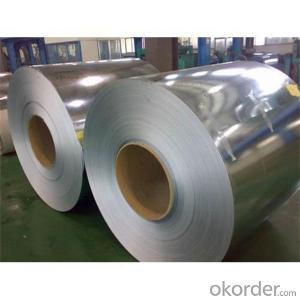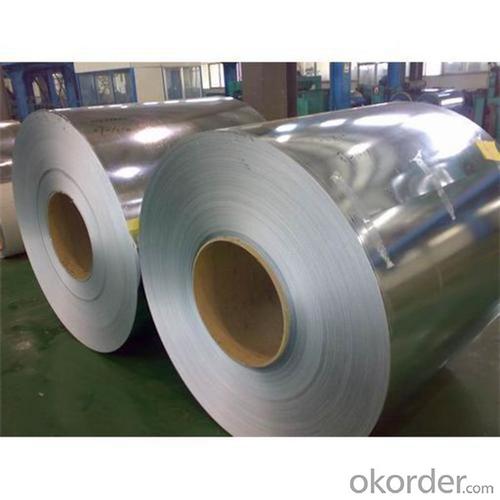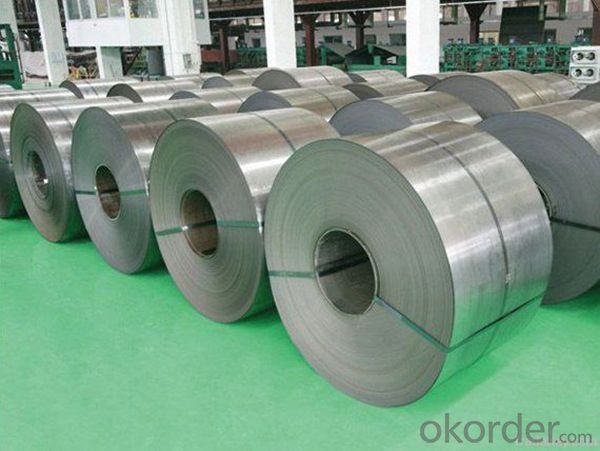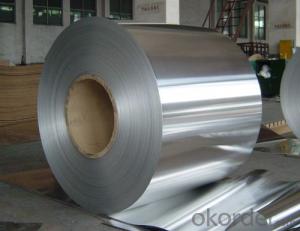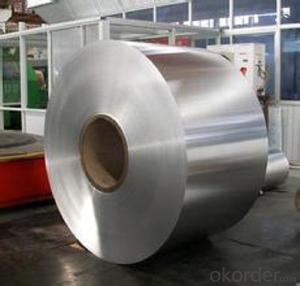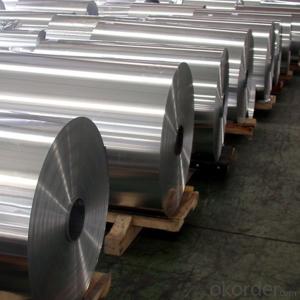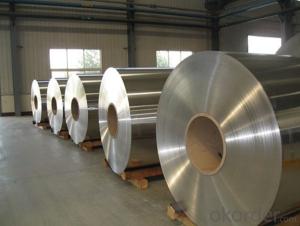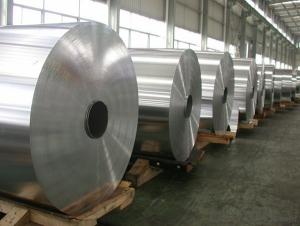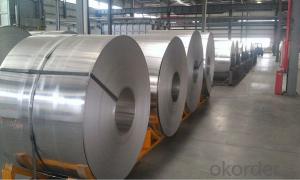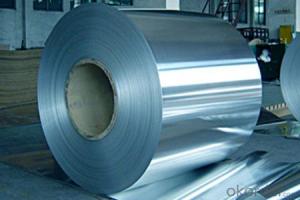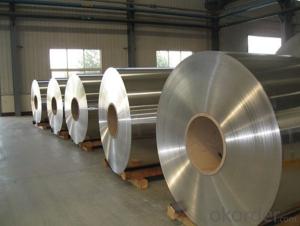Coiled Aluminum AA1050 Hot Rolled Aluminum Coil for Building
- Loading Port:
- Shanghai
- Payment Terms:
- TT OR LC
- Min Order Qty:
- 5 m.t.
- Supply Capability:
- 10000 m.t./month
OKorder Service Pledge
OKorder Financial Service
You Might Also Like
Specification
1. Specification of Factory Supply Hot Rolled Aluminium Coil AA1050 for Building
characteristics | Application |
1) Super peeling strength | 1) Building exterior curtain walls |
2) Excellent surface flatness and smoothness | 2) Decoration and renovation additions for old buildings |
3) Superior weather, corrosion, pollutant resistance | 3) Decoration of interior walls, ceilings, bathrooms, kitchens and balconies |
4) Even coating, various colors | 4) Shop door decorations |
5) Fireproof, excellent heat and sound insulation | 5) Advertisement board display platforms and signboards |
6) Superior impact resistance | 6) Wallboards and ceilings for tunnels |
7) Lightweight and easy to process | 7) Industrial materials, materials for vehicles and boats |
2. Application of Factory Supply Hot Rolled Aluminium Coil AA1050 for Building
(1).Interior: wall cladding, ceilings, bathrooms, kitchens and balconies, shutters, doors...
(2).Exterior: wall cladding, facades, roofing, canopies, tunnels, column covers , renovations...
(3).Advertisement: display platforms, signboards, fascia, shop fronts...
3. Feature of Factory Supply Hot Rolled Aluminium Coil AA1050 for Building
• Our goods quality is top, the surface is smooth, and every steel coil
• No Joint, No Bends, no spots, no roller marks.
• MTC will be provided with goods, third part inspection is acceptable, for example, SGS, BV. Etc
Be free from Oil Stain, Dent, Inclusion, Scratches, Stain, Oxide Dicoloration, Breaks, Corrosion, Roll Marks, Dirt Streaks and other defect which will interfere with use
4. Certificate:
SGS and ROHS(if client request, paid by client), MTC(plant provided), Certificate of Origin(FORM A, FORM E, CO), Bureau Veritas and SGS (if client request, paid by client), CIQS certificate
5. Image of Factory Supply Hot Rolled Aluminium Coil AA1050 for Building
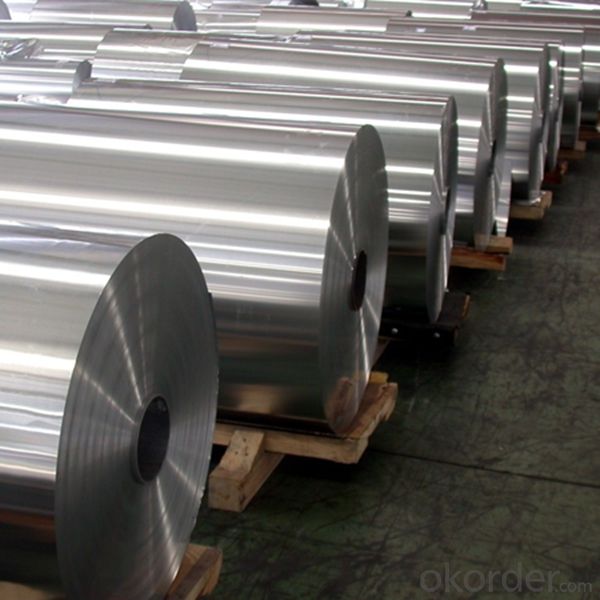
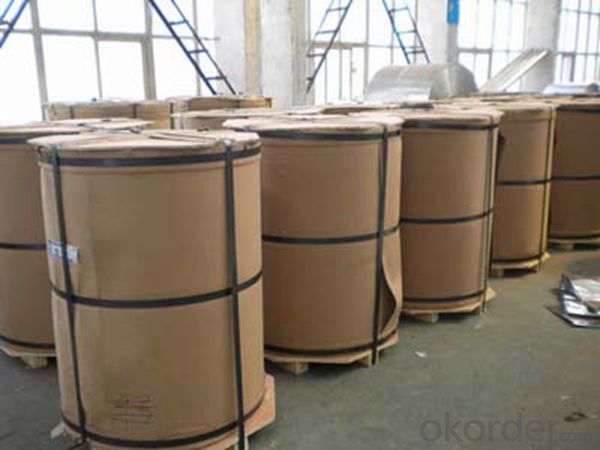
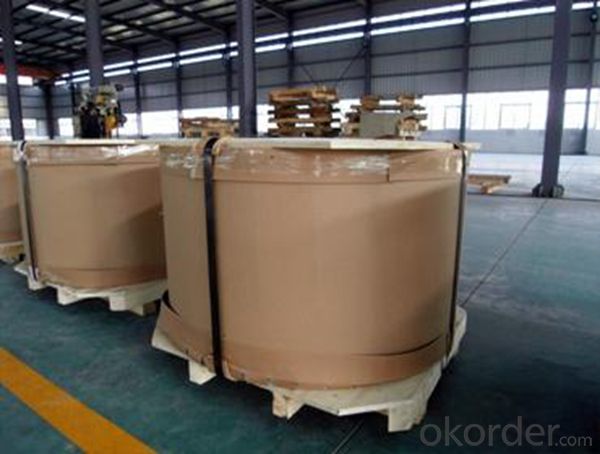
6. Package and shipping of Factory Supply Hot Rolled Aluminium Coil AA1050 for Building
eye to wall
eye to the wall
with wood pallet (wooded case also available)
7. FAQ
1) What is the delivery time?
Dpends on actual order, around 20 to 35 days
2)What is the QC system:
We have QC staff of 20 persons and advanced equipment, each production is with MTC traced from Aluminum ingot lot.
3) What market do you mainly sell to?
Australia, America, Asia, Middle East, Western Europe, Africa etc
- Q: This question asks for methods to prevent rust formation on aluminum coils during indoor storage.
- <p>To prevent rust on aluminum coils when storing them indoors, ensure that the storage area is clean and dry. Keep the coils away from moisture and humidity, as these can cause oxidation. Use protective wrapping or coverings to shield the coils from dust and airborne moisture. Regularly inspect the coils for any signs of condensation or dampness and address these promptly. Maintain proper ventilation in the storage area to reduce humidity levels. Additionally, avoid stacking the coils directly on the ground; use pallets or racks to elevate them, which helps in air circulation and prevents contact with moisture that could be present on the floor.</p>
- Q: What is the difference between pre-painted and natural aluminum coils?
- There are two types of aluminum coils used in various industries: pre-painted and natural. The surface finish is the main distinguishing factor between these two types. Pre-painted aluminum coils are coated with paint or a protective coating before delivery. This coating is applied in a controlled environment, ensuring a uniform and durable finish. The advantages of pre-painted coils include increased resistance to corrosion, improved appearance, and better ability to withstand weather conditions. They also offer a wide range of color options, which makes them suitable for architectural applications where color matching is important. On the other hand, natural aluminum coils remain untreated and maintain their original metallic appearance. These coils are commonly used in applications where the natural aluminum finish is desired, such as in the production of consumer electronics, automotive parts, and other industrial products. Natural aluminum coils are known for their excellent thermal conductivity, lightweight nature, and high strength-to-weight ratio. In conclusion, the difference between pre-painted and natural aluminum coils lies in their surface finish. Pre-painted coils have a protective layer of paint, providing improved resistance to corrosion, better appearance, and color choices. Natural aluminum coils, on the other hand, retain their original metallic appearance and are often preferred in applications where the natural aluminum finish is desired.
- Q: What are the different protective coatings available for aluminum coils?
- There are several different protective coatings available for aluminum coils. Some common options include: 1. Polyester Coating: This is a versatile coating that provides excellent weather resistance and color retention. It is commonly used in outdoor applications where the aluminum coils may be exposed to harsh weather conditions. 2. Polyvinylidene Fluoride (PVDF) Coating: PVDF coatings are known for their exceptional durability and resistance to fading, chalking, and chemical exposure. They are often used in architectural applications where a long-lasting and high-performance finish is required. 3. Epoxy Coating: Epoxy coatings offer excellent adhesion and corrosion resistance. They are frequently used in industrial settings, such as in the manufacturing of appliances or automotive parts. 4. Acrylic Coating: Acrylic coatings provide good weatherability and UV resistance. They are commonly used in interior applications or in environments with mild outdoor exposure. 5. Polyurethane Coating: Polyurethane coatings offer a high level of impact resistance and flexibility. They are often used in applications where the aluminum coils may be subject to physical stress or deformation. 6. Ceramic Coating: Ceramic coatings provide superior heat resistance and thermal stability. They are commonly used in automotive applications or in environments with high-temperature exposure. Overall, the choice of protective coating for aluminum coils depends on the specific application requirements, such as weather resistance, durability, or chemical resistance. It is important to consider the environmental conditions and performance expectations when selecting the appropriate coating for aluminum coils.
- Q: What are the tensile strength properties of aluminum coils?
- The tensile strength properties of aluminum coils are known to be quite high. Aluminum, as a material, possesses excellent strength-to-weight ratio, which makes it suitable for various applications that require strength coupled with lightweight properties. The specific tensile strength of aluminum coils can vary depending on the alloy and temper used. Generally, aluminum coils have a tensile strength ranging from 110-310 MPa (megapascals), or approximately 16,000-45,000 psi (pounds per square inch). These values indicate the maximum amount of tensile stress that the aluminum coil can withstand before it breaks or deforms permanently. It is important to note that the tensile strength can be further enhanced by heat treatment processes such as cold rolling or annealing. Overall, aluminum coils are recognized for their impressive tensile strength properties, which contribute to their wide usage in industries like aerospace, automotive, construction, and manufacturing.
- Q: Can aluminum coils be used in transformer windings?
- Transformer windings can indeed utilize aluminum coils. Aluminum is a widely employed material for transformer windings because its resistivity is low, conductivity is high, and it is cost-effective compared to copper. It possesses numerous advantages, including being lighter in weight, having superior thermal conductivity, and yielding lower manufacturing expenses. However, there are certain considerations to keep in mind when using aluminum coils in transformer windings. For instance, a larger cross-sectional area is necessary to compensate for its lower conductivity when compared to copper. Furthermore, special techniques may be required to prevent galvanic corrosion when aluminum comes into contact with other metals within the transformer. All in all, aluminum coils can serve as a viable substitute for copper coils in transformer windings, providing benefits in terms of efficiency and cost.
- Q: Dongying power plant with 0.6mm thick insulation aluminum coil, manufacturers can be divided into small volumes?
- Tolerable。 The price depends mainly on what you need to split into.
- Q: How much cube is the 0.9mm aluminum rolling?
- This is a common problem. Anyone who had received high school education can calculate it very quickily. One way is to calculate sectional area with circular area, then times the thickness of the aluminum rolling. Another way is to use the outer diameter circular area to subtract the core area and then times the thickness of aluminum rolling.
- Q: Are aluminum coils suitable for low-maintenance applications?
- Yes, aluminum coils are suitable for low-maintenance applications. Aluminum is known for its durability and resistance to corrosion, making it an excellent choice for applications that require minimal upkeep. Unlike other materials, such as steel, aluminum coils do not rust or require regular painting to maintain their appearance. Additionally, aluminum is lightweight, which can make installation and handling easier, especially in low-maintenance applications where frequent maintenance may not be feasible or desirable. Overall, aluminum coils offer a reliable and low-maintenance solution for various applications.
- Q: I am a college student living in a private apartment and I use up lots of aluminium foils to cook and eat. I use aluminium foils as plates because I am too lazy to clean plates. I want to know how environment-unfriendly i am for doing so. How bad am I compared to the guy who keeps on drinking from cans without recycling them?
- Aluminium foil is less than 0.2mm thick but typically 0.02mm so a piece 300mm x 100mm has a total volume of 3 x 1 x 2 x 10^2 mm^3 that is 600 mm^3 The density of Al is 2700 kg/m^3 so the mass of your foil is 2700 x 600 /10^9 kg = 0.00162 kg = 1.62 g Modern aluminium cans weigh about 15g I take it you aren't studying either physics or mathematics or you would easily have workd it out!
- Q: Are aluminum coils suitable for signage and advertising applications?
- Yes, aluminum coils are suitable for signage and advertising applications. Aluminum is a highly versatile material that offers several advantages for these purposes. First, aluminum is lightweight, making it easy to handle and install. This is especially beneficial for large-scale signage or advertising displays. Second, aluminum is highly durable and resistant to corrosion, ensuring that the signage or advertising materials will withstand the elements and maintain their appearance over time. Additionally, aluminum can be easily fabricated and customized to meet specific design requirements, allowing for creativity and flexibility in signage and advertising applications. Moreover, aluminum is a sustainable material that is recyclable, making it an environmentally friendly choice for signage and advertising projects. Overall, the characteristics of aluminum coils make them an ideal option for signage and advertising applications.
Send your message to us
Coiled Aluminum AA1050 Hot Rolled Aluminum Coil for Building
- Loading Port:
- Shanghai
- Payment Terms:
- TT OR LC
- Min Order Qty:
- 5 m.t.
- Supply Capability:
- 10000 m.t./month
OKorder Service Pledge
OKorder Financial Service
Similar products
Hot products
Hot Searches
Related keywords
